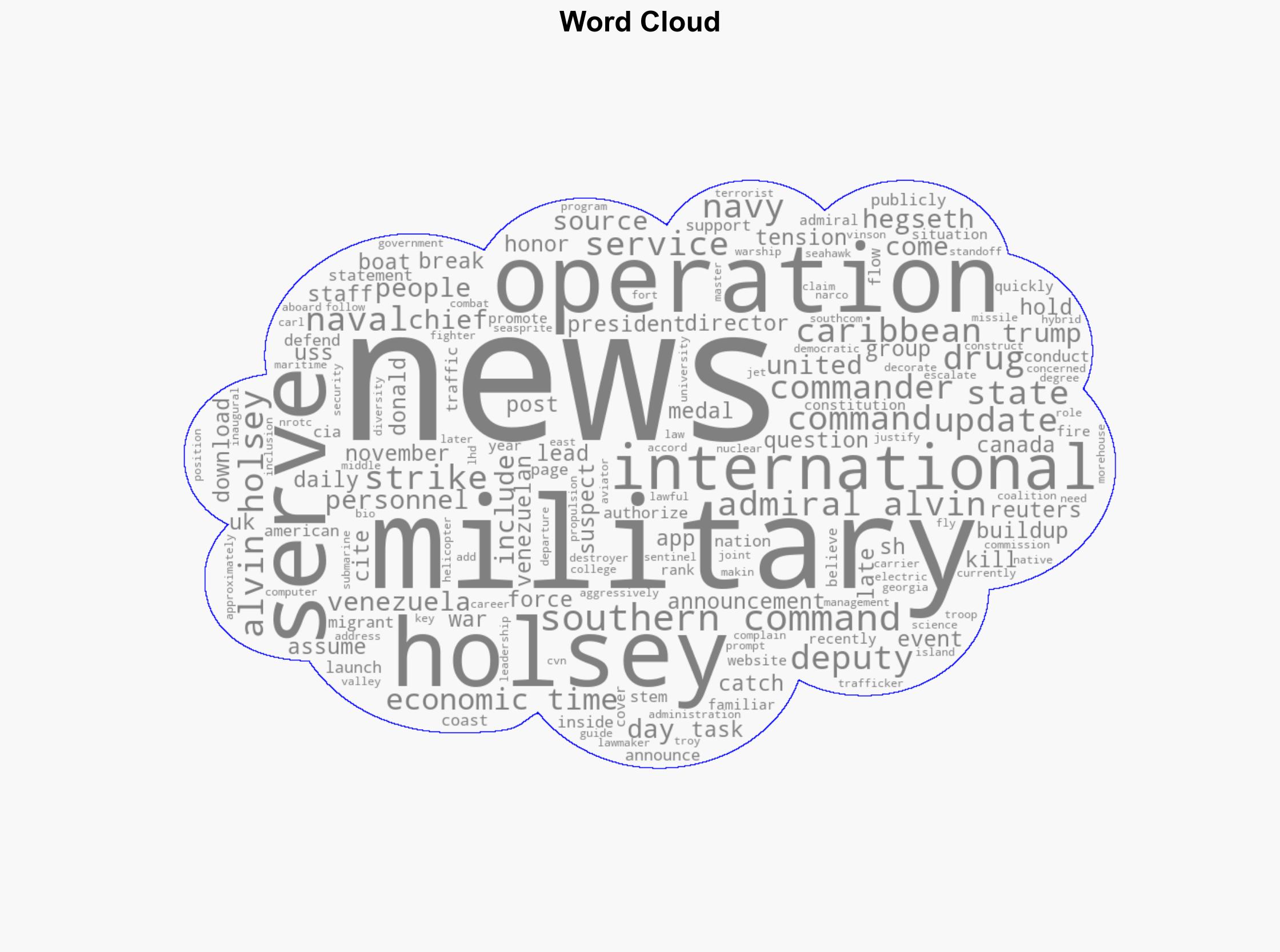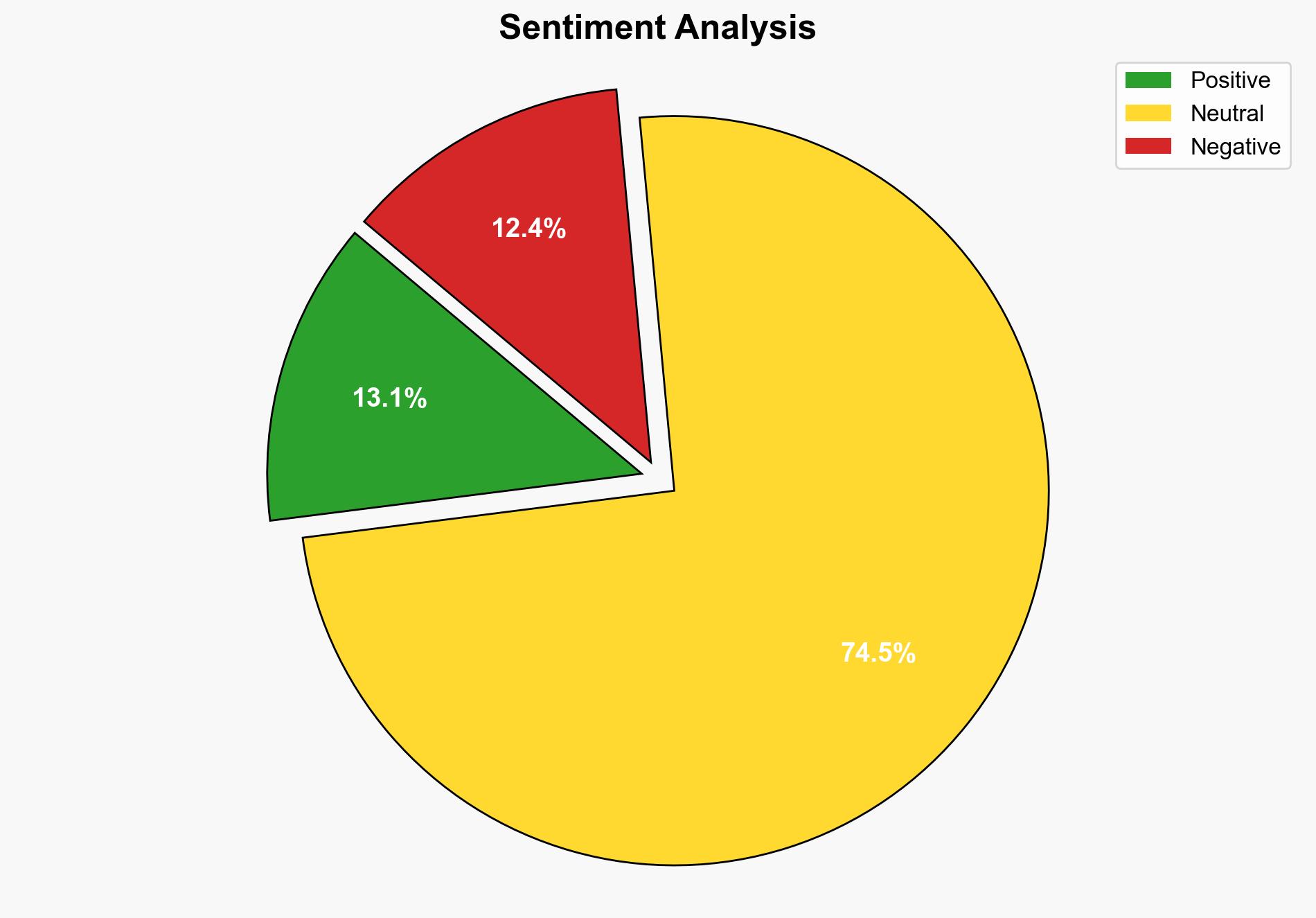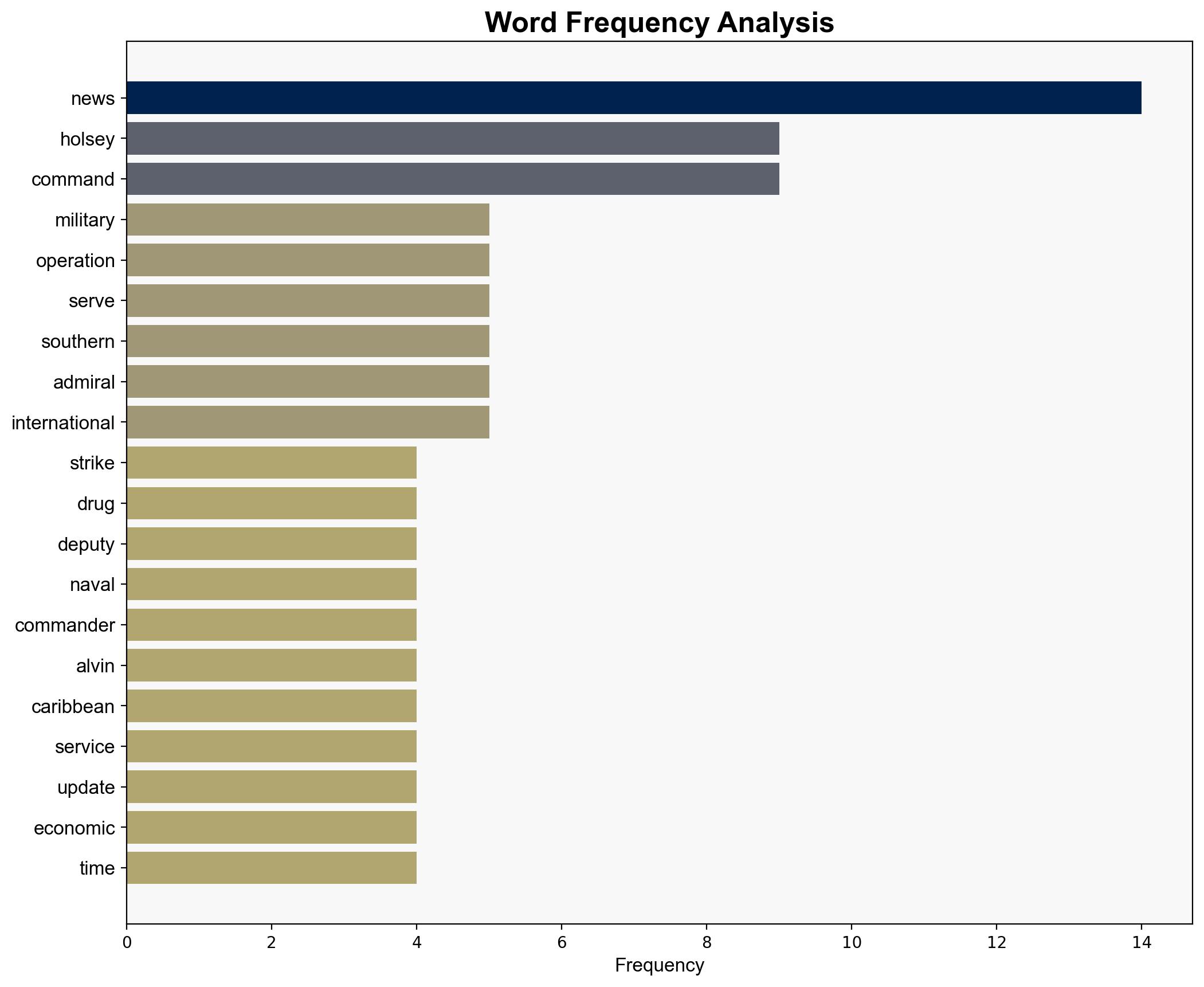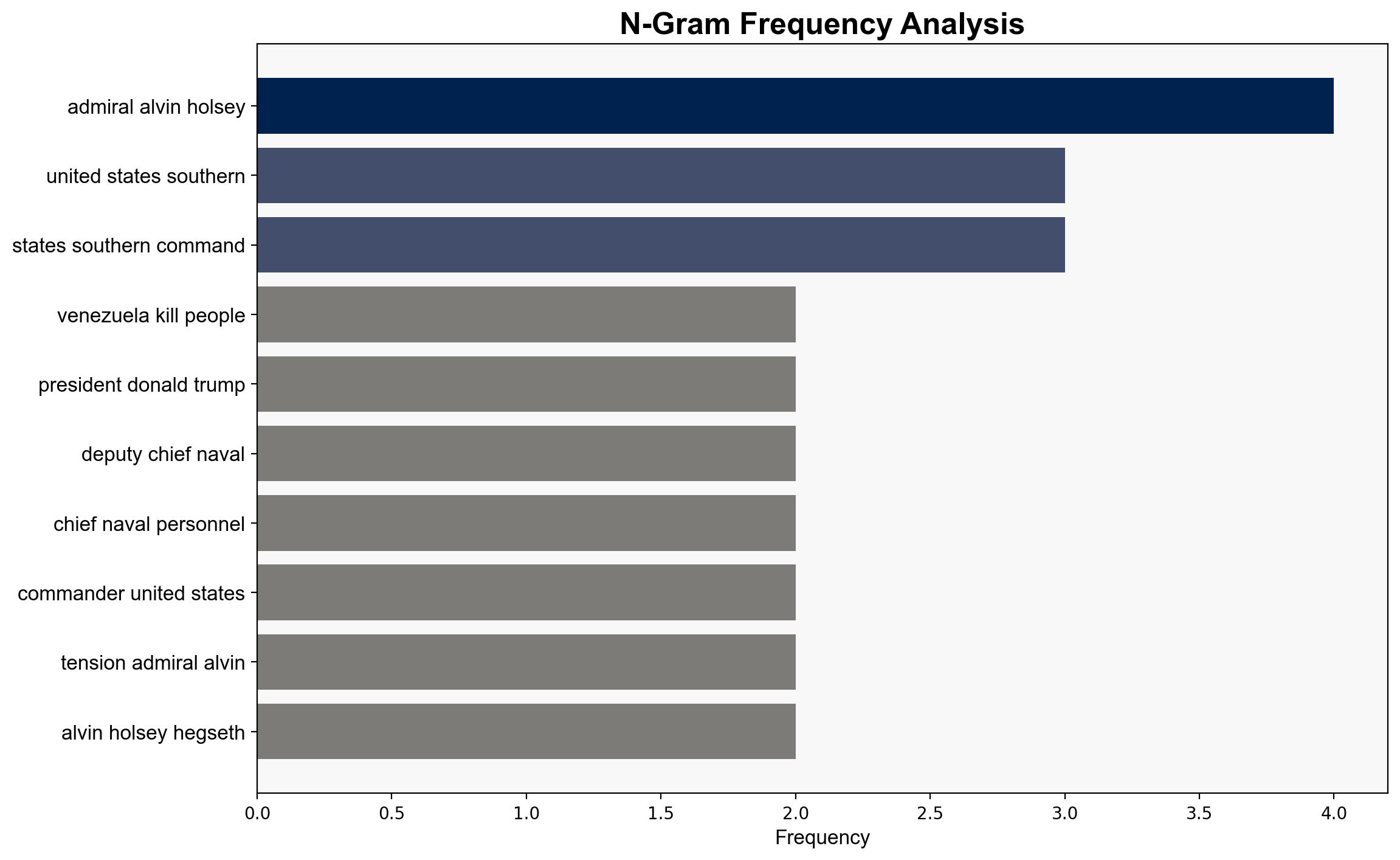Navy Admiral and SouthCom Commander Alvin Holsey to retire after one year after rift with Hegseth for not acting aggressively enough in Trumps drug war in the Caribbean – The Times of India
Published on: 2025-10-17
Intelligence Report: Navy Admiral and SouthCom Commander Alvin Holsey to retire after one year after rift with Hegseth for not acting aggressively enough in Trump’s drug war in the Caribbean – The Times of India
1. BLUF (Bottom Line Up Front)
The retirement of Alvin Holsey may indicate internal disagreements within the U.S. military regarding the approach to drug trafficking operations in the Caribbean. The most supported hypothesis suggests a strategic divergence between Holsey and Hegseth, with implications for U.S. military operations in the region. Confidence level: Moderate. Recommended action: Reassess the strategic objectives and legal frameworks guiding military operations in the Caribbean to ensure alignment with broader U.S. policy goals.
2. Competing Hypotheses
1. **Hypothesis A**: Holsey’s retirement is primarily due to strategic disagreements with Hegseth over the aggressiveness of operations against drug traffickers in the Caribbean. This hypothesis is supported by reports of tension and differing operational philosophies.
2. **Hypothesis B**: Holsey’s retirement is a result of broader political and operational pressures, including legal concerns about the legitimacy of military actions in the region. This hypothesis considers the context of increased military presence and legal scrutiny from lawmakers.
Using ACH 2.0, Hypothesis A is better supported due to direct references to tensions with Hegseth and the specific criticism of Holsey’s approach. Hypothesis B lacks direct evidence linking Holsey’s retirement to political pressures, though it remains plausible.
3. Key Assumptions and Red Flags
– Assumption: Holsey’s retirement is directly linked to his operational decisions. This assumes no other personal or professional factors influenced his decision.
– Red Flag: Lack of explicit statements from Holsey or official sources confirming the reasons for retirement.
– Potential Bias: Media reports may emphasize conflict narratives, overshadowing other factors.
– Missing Data: Detailed accounts of internal discussions and strategic evaluations within SouthCom.
4. Implications and Strategic Risks
– **Military Cohesion**: Internal disagreements could affect the cohesion and effectiveness of U.S. military operations in the Caribbean.
– **Legal and Ethical Concerns**: Increased military actions may face legal challenges, potentially impacting U.S. international relations and domestic support.
– **Escalation Risks**: Aggressive operations could escalate tensions with Venezuela, leading to broader geopolitical conflicts.
– **Regional Stability**: The focus on military solutions might overlook diplomatic and economic strategies to address drug trafficking.
5. Recommendations and Outlook
- Conduct a comprehensive review of the strategic objectives and legal frameworks guiding Caribbean operations to ensure alignment with U.S. policy goals.
- Engage in diplomatic efforts with regional partners to address drug trafficking collaboratively.
- Scenario Projections:
- Best Case: Improved regional cooperation and reduced drug trafficking through balanced military and diplomatic efforts.
- Worst Case: Escalation of military conflict with Venezuela, straining international relations.
- Most Likely: Continued military operations with periodic legal and political challenges.
6. Key Individuals and Entities
– Alvin Holsey
– Hegseth
– Donald Trump
7. Thematic Tags
national security threats, military strategy, regional focus, legal frameworks, geopolitical tensions




